Marine protected areas are limited in restoring food webs after intensive fishing
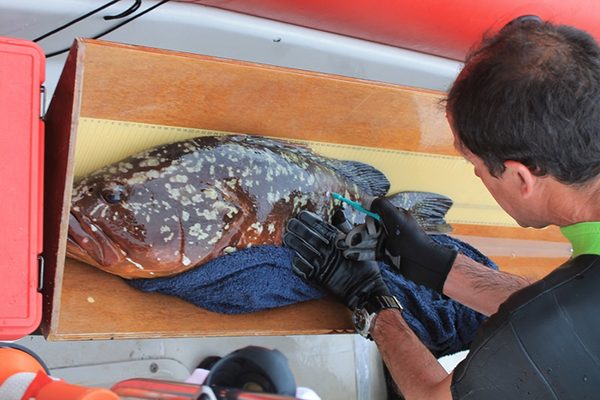
Marine protected areas (MPAs) are one of the essential tools for the conservation of natural resources affected by human impact – mainly fishing – but can they recover the functioning of these systems? A new study published in the ICES Journal of Marine Science has found that marine protected areas are limited in restoring food webs to their pristine state prior to the impact of intensive fishing.
“This study shows that with only small-scale marine reserves, it is not enough to conserve the functionality of marine ecosystems. In areas with intense fishing pressure, both professional and recreational, exploited areas have more influence on small reserves,” said lecturer Lluís Cardona, co-author of the study and lecturer at the Faculty of Biology and Biodiversity Research Institute (IRBio) of the University of Barcelona.
Through underwater visual censuses, researchers from IRBio and the Group of Ecosystem Oceanography (GRECO) of the Oceanographic Center of the Balearic Islands analyzed the number and size of carnivorous fish living on shallow rocky bottoms in the Mediterranean Sea and in temperate areas of the Atlantic Ocean. Later, the team used a special technique for analyzing carbon and nitrogen to see if there had been a change in the diet of the species and the larger food web.
In the Mediterranean, the samples were obtained in the Cabrera National Park (Majorca), in areas where this activity has been banned since 1991. These samples were compared to those from the west side of Majorca, where this activity is allowed. Samples were also taken from the Cies Islands, a small archipelago that belongs to the Atlantic Islands of Galicia National Park, where certain types of fishing have been prohibited since 2002 (except for small-scale artisanal fishing), and other areas in the mouth of the adjacent Ria de Vigo, which are open to all fishing.
The findings show a larger biomass and size of carnivorous fish from shallow rocky bottoms in the analyzed marine reserves, compared to areas open to fishing. The most extreme examples were the dusky grouper (Epinephelus marginatus) in the Balearic Islands, and the sargo (Diplodus sargus) in Galicia, since the individuals larger than 45cm (as in the first case) and 26cm (in the second case) could only be found in the protected areas.
Apart from the positive effects, the study indicates that the protection of fishing did not cause any significant change in the trophic structure of the carnivorous fish community in any of those two regions, although there were some changes in the diet of some species. According to the researchers, this indicates that the effects of the marine reserves in the Mediterranean Sea and the north-eastern areas of the Atlantic Ocean are “insufficient to help reconstruct the populations of some carnivorous fish and restore the size structure, as well as to provoke changes in the diet of certain species, but they are unlikely to induce the recovery of the trophic structure of pristine ecosystems prior to the intensification of fishing.”
These results are attributed to the lack of large carnivorous fish and other highly mobile species, such as seals and coastal sharks, which are at the top of the food chain and have been affected by human exploitation.
“Marine reserves favor the recovery of species such as the dusky grouper, but not other highly mobile and large species such as sharks, dolphins and seals,” said Cardona. “Even species such as the sea bass have problems recovering in Galicia’s marine reserves. The lack of these species is what prevents the emergence of differences in food webs between reserves and areas open to fishing, in the Mediterranean and the Atlantic, beyond the recovery of the biomass of some sedentary species.”
According to the researchers, the goals of the marine networks in regions where mobile predators have been depleted or have become extinct need to be “rethought in more realistic terms than the recovery of pristine conditions prior to intensive fishing.” Although in marine reserves, some of the characteristics of the historical trophic structure, such as biomass and size structure of certain sedentary species, can be recovered.
Cardona says future conservation of marine ecosystems should focus on “reducing the impact on highly mobile and large species in the areas that are open to fishing, since marine reserves alone can do little to protect these species.”
According to the researchers, the situation could be different in areas where human pressure has been lower and where there is still part of the original diversity of larger and highly mobile carnivorous fish, such as in the north-eastern Pacific Ocean, where populations of most of these species remain in good conditions thanks to the conservation measures applied throughout the territory.
Follow the Advocate on Twitter @GSA_Advocate
Now that you've reached the end of the article ...
… please consider supporting GSA’s mission to advance responsible seafood practices through education, advocacy and third-party assurances. The Advocate aims to document the evolution of responsible seafood practices and share the expansive knowledge of our vast network of contributors.
By becoming a Global Seafood Alliance member, you’re ensuring that all of the pre-competitive work we do through member benefits, resources and events can continue. Individual membership costs just $50 a year.
Not a GSA member? Join us.
Author
Related Posts
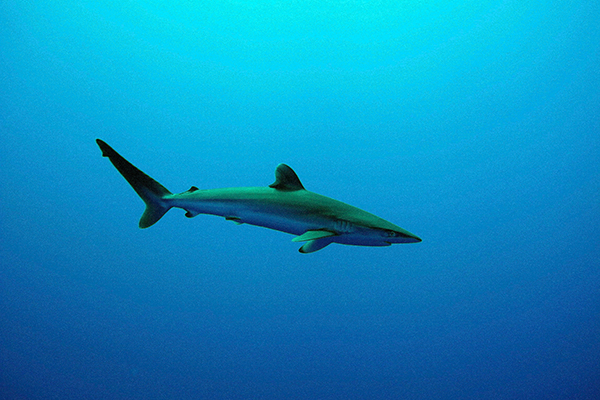
Fisheries
Fisheries management help tunas, billfishes recover, but extinction risk of sharks rises
New study suggests conservation and fisheries management help tunas and billfishes recover, but shark biodiversity continues to decline.
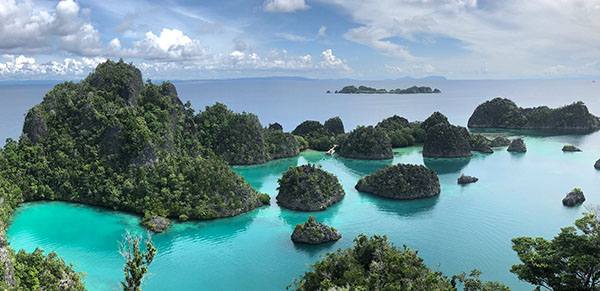
Fisheries
Researchers develop model to predict success of Marine Protected Areas
Researchers aim to predict the success of Marine Protected Areas based on historical fishing pressure and environmental conditions.
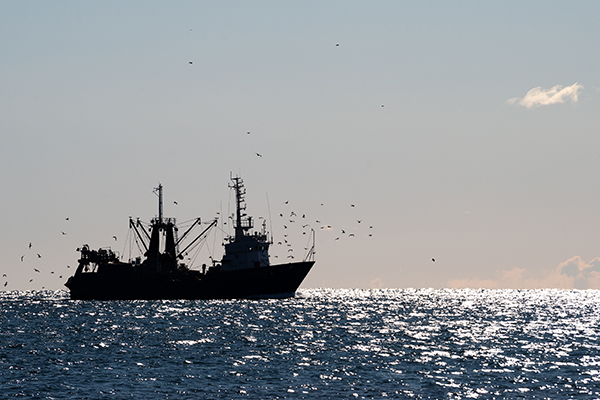
Responsibility
Study pinpoints Pacific Ocean priority areas to consider for marine conservation
New research has pinpointed four high-traffic areas in the Pacific Ocean that should be considered "high priority" for marine conservation.
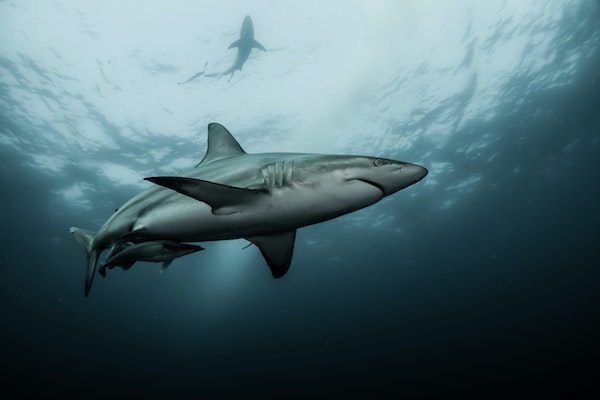
Fisheries
Study: Effective fisheries management reduces extinction risk of sharks and rays
The extinction risk of sharks and rays can be significantly reduced with effective fisheries management and policies, says a Virginia Tech study.



